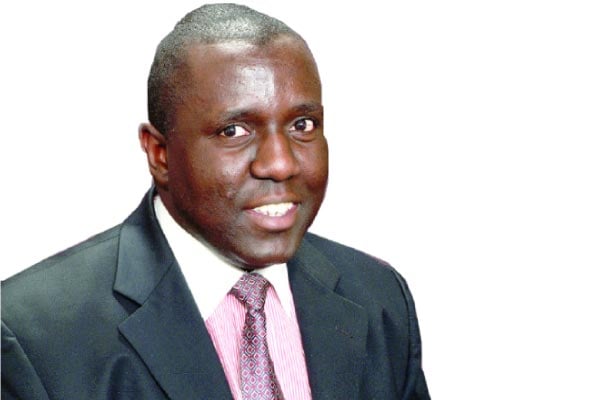Prime
NSSF’s biggest risk is falling off the cliff, and the ravine is getting close

Author: Mr Karoli Ssemogerere is an Attorney-at-Law and an Advocate.
What you need to know:
- Smart people fear being blacklisted for economic crimes, the sort an empty NSSF black hole would do when the real books are published.
A lot has been thoughtfully in the Daily Monitor about the crisis of leadership at the top. The Minister of Labour has refused to renew the Managing Director’s contract and instead appointed his deputy, as the Acting Managing Director. Both gentlemen have attained retirement age, but for lack of a better word are still very “interested” in NSSF’s historical mission.
Inside Uganda, NSSF’s struggles are similar to any other big player in the public sector. Mention any, National Water and Sewerage Corporation barely able to keep taps dry in the sprawling water districts it serves, [most homes don’t notice the taps are dry because they have drilled onsite wells and rain storage; that in turn affects National Water’s revenue]; Umeme whose concession is finally set to end in 2025 that operates creaky power lines that are continuously flickering, power surges destroying both domestic appliances and industrial equipment. Umeme is attempting to deliver power from power lines being vandalized for steel products by the jua kali sector.
The damage is in the billions. It calls for more than Dutch courage to scale a pylon to draw the spare wires, which are then smelted into steel. Ask UNRA, who lost all the security scaffolding on the Expressway. And ask who does the job, it could even be the neighborhood child who needs to buy data for his smart phone.
The Civil Aviation Authority is facing its own existential public crisis after the public rebelled against thieves manning the airport. I have only used the airport five times in the past year, and did not run into people trying to load my luggage at the check-in counter or hoard my passport.
However, I always take my Corvid test at the airport. I am yet to find justification of why I should have more vaccines in my body after Sinovac, the one I took the first time run out. Most of the vaccines being administered in Uganda are expired, about to expire or simply mishandled. With our power blackouts, keeping about to expire vaccines is a problem.
Back to NSSF, its future is tied to Uganda’s fiscal fortunes. The IMF just released the last tranche of about USD 250 million, in catastrophic aid noting that Uganda was struggling to keep minimum foreign exchange reserves at the Bank of Uganda. IMF uses a simple formula, around 3-4 months reserves being healthy.
In the case of Uganda, IMF cautiously tiptoed around a collapse in domestic demand, lack of spending power in the economy that keeps on seeing major retailers closing shop. Although the departure of operators like Game has other causes similar to those facing the public sector in Uganda. Spire Ssentongo calls it the rising dishonesty gene.
In 2022, NSSF posted 9.65 percent returns after a difficult year where a few contributors were allowed to dip into their savings, the so-called mid-term access. During the withdrawal period, NSSF publicists kept a close lid on how many people actually withdrew money from NSSF, and they were many. Mr. Byarugaba stepped on conventional wisdom.
Government is paying NSSF upwards of 17.5 percent to buy its 20 -year bond. Even if management earned a respectable 3 percent of this to occupy space; drive nice cars and contribute to the campaign kitties of their bosses, members would still effortlessly walk away with at least 14 percent returns.
If management were a bit more generous and bought “airtime” in stocks like MTN, they would still be comforted that MTN has a reasonable rate of return, if not they can simply deposit some big funds on a mobile money account. Smaller players like Prudential, Sanlam are offering a 10 percent monthly bonus to savers without the legal protection and statutory monopoly NSSF enjoys.
No wonder, the Daily Monitor in its last expose diagnosed the core problem at NSSF; institutional mediocrity. Fishermen are managing people’s savings; it is easier for them to report to Namunkekera rather than in the annual fund report. It is also possible, the ousted MD is getting tired of running two separate books for NSSF, the official ones and the unofficial ones.
Smart people fear being blacklisted for economic crimes, the sort an empty NSSF black hole would do when the real books are published.
Mr Ssemogerere is an Attorney-At-Law and an Advocate.




